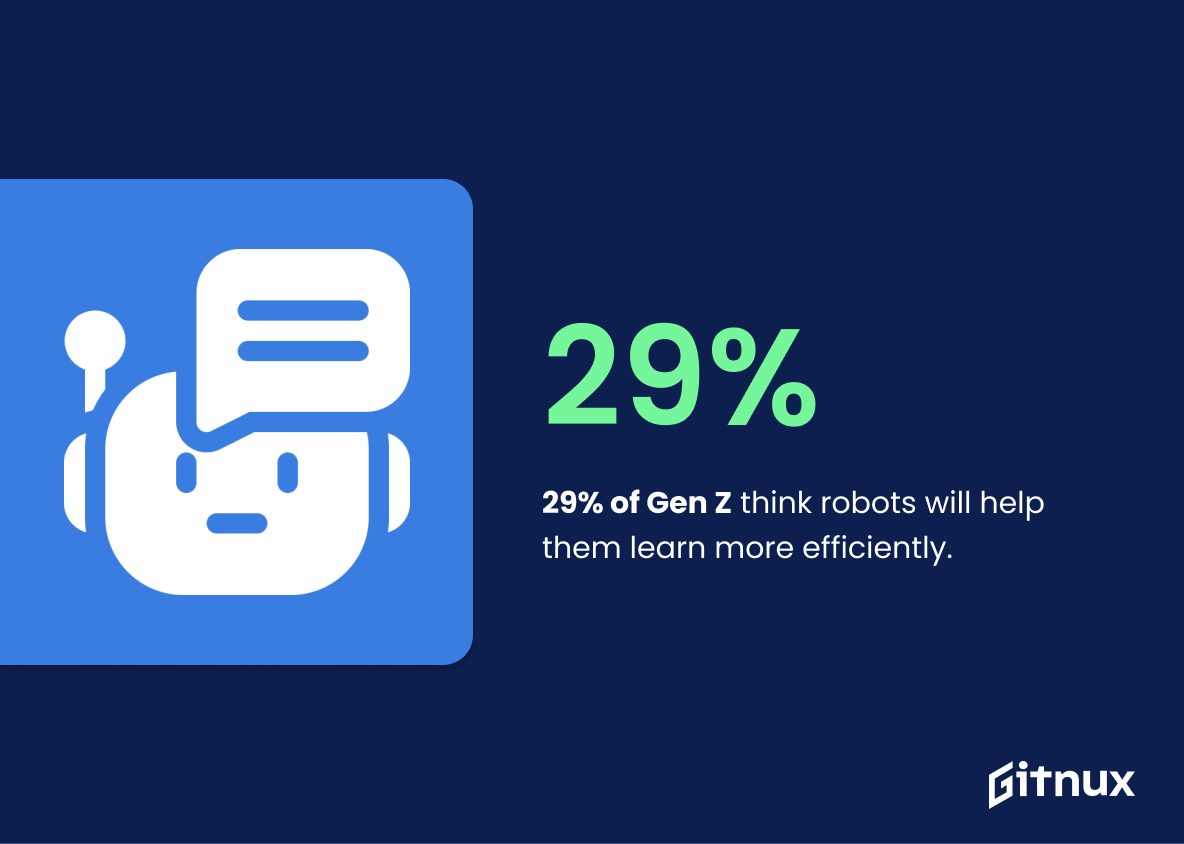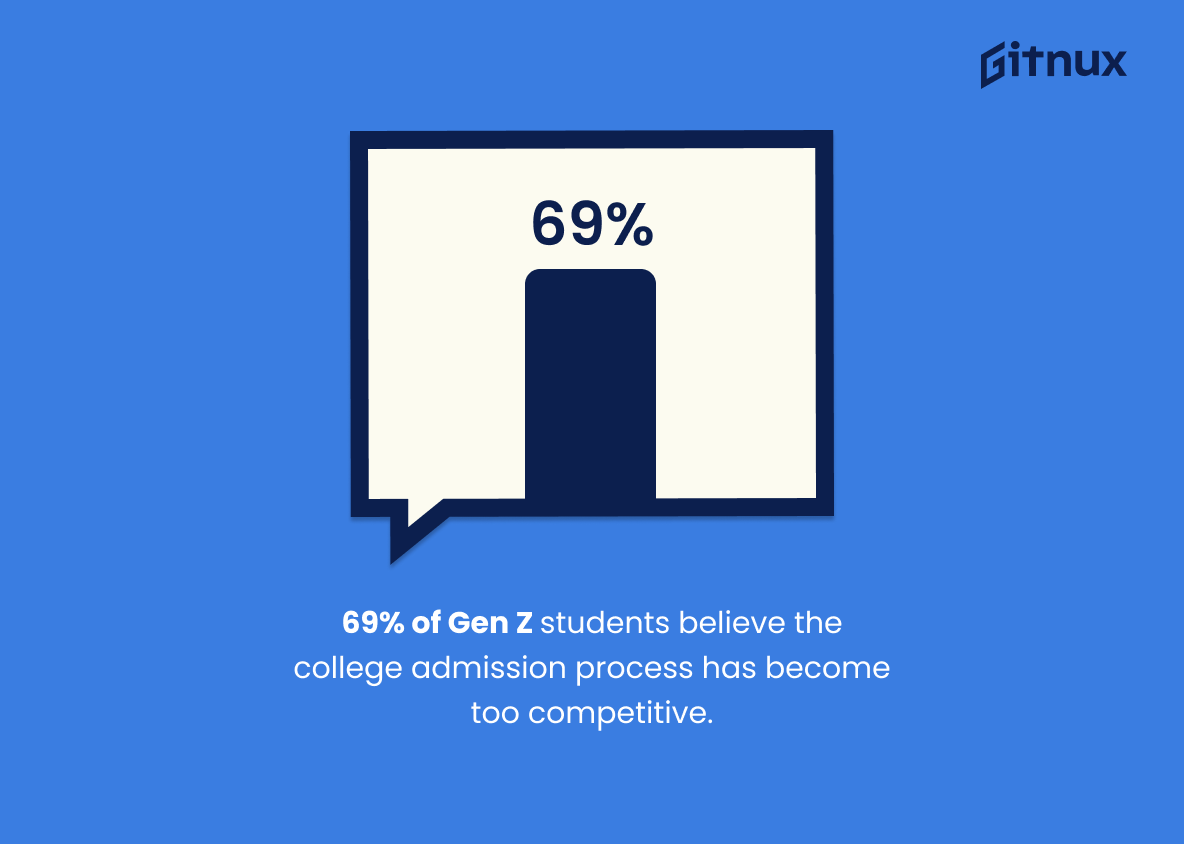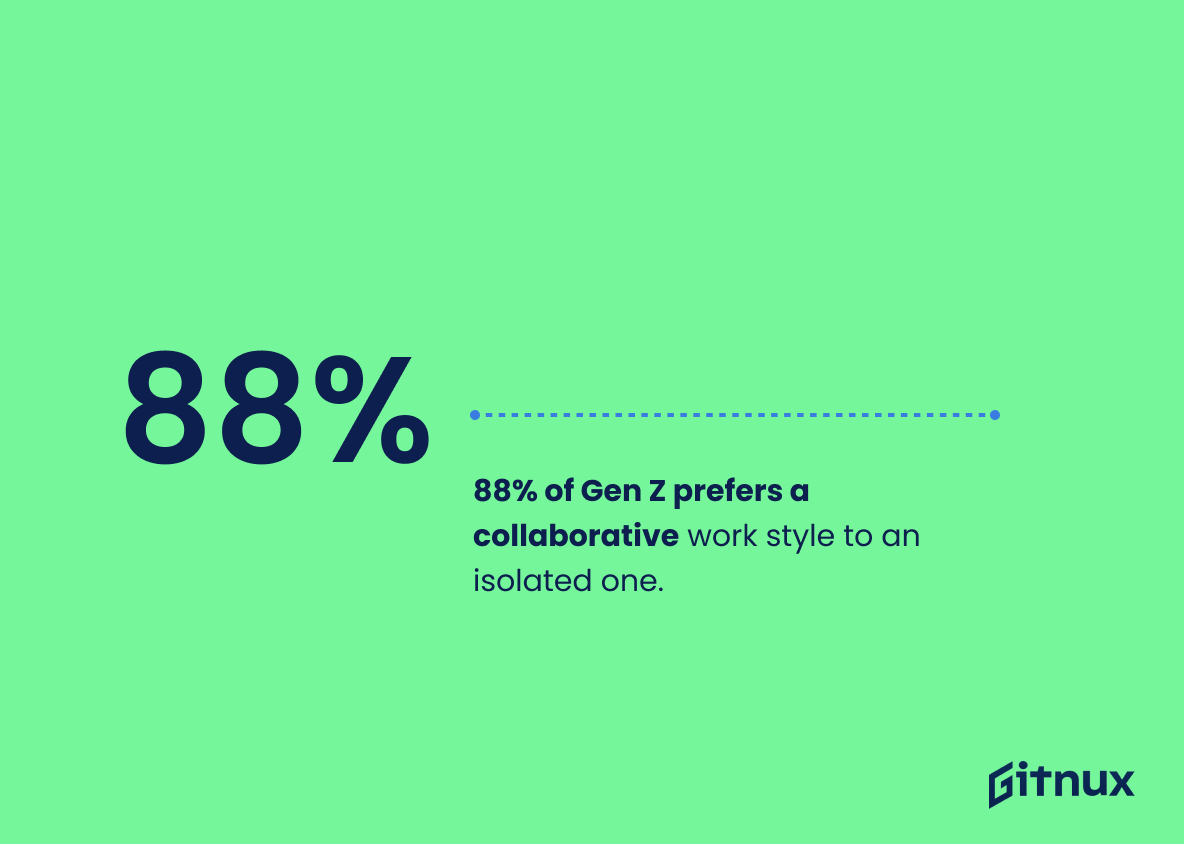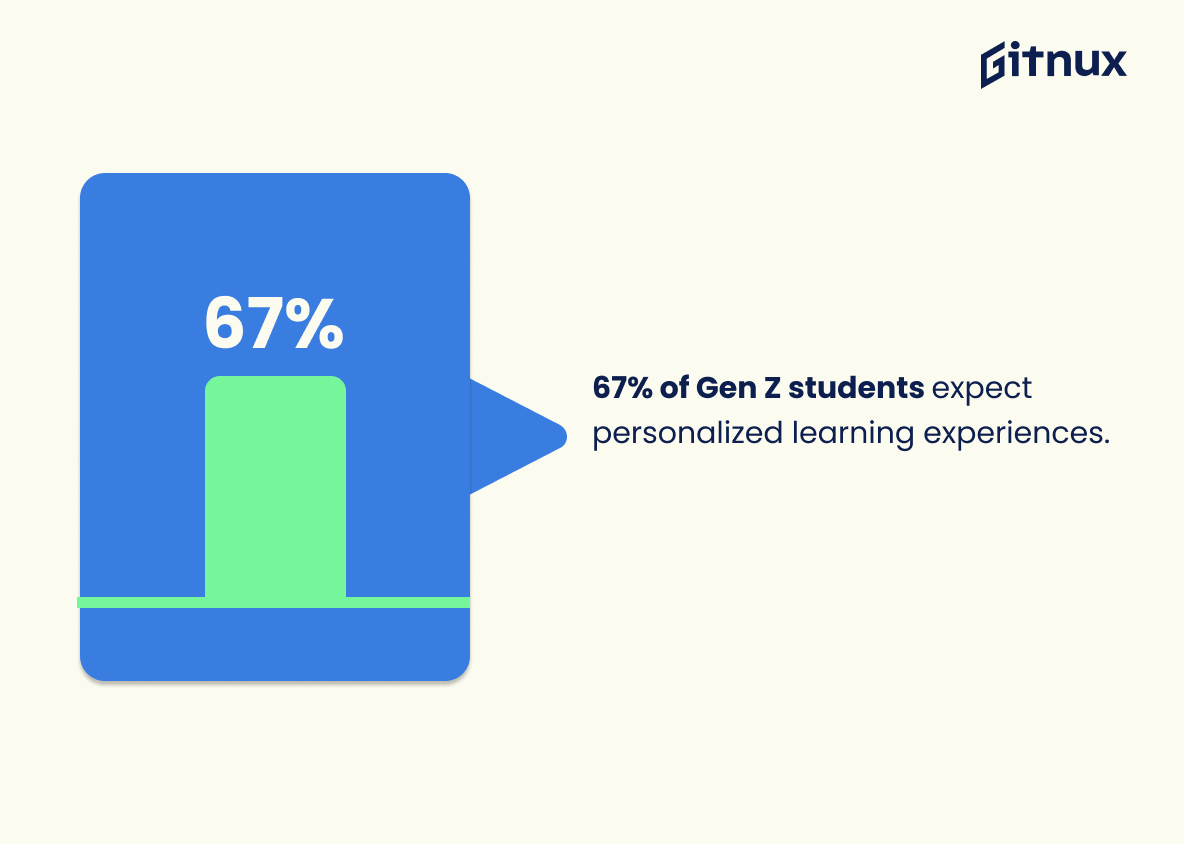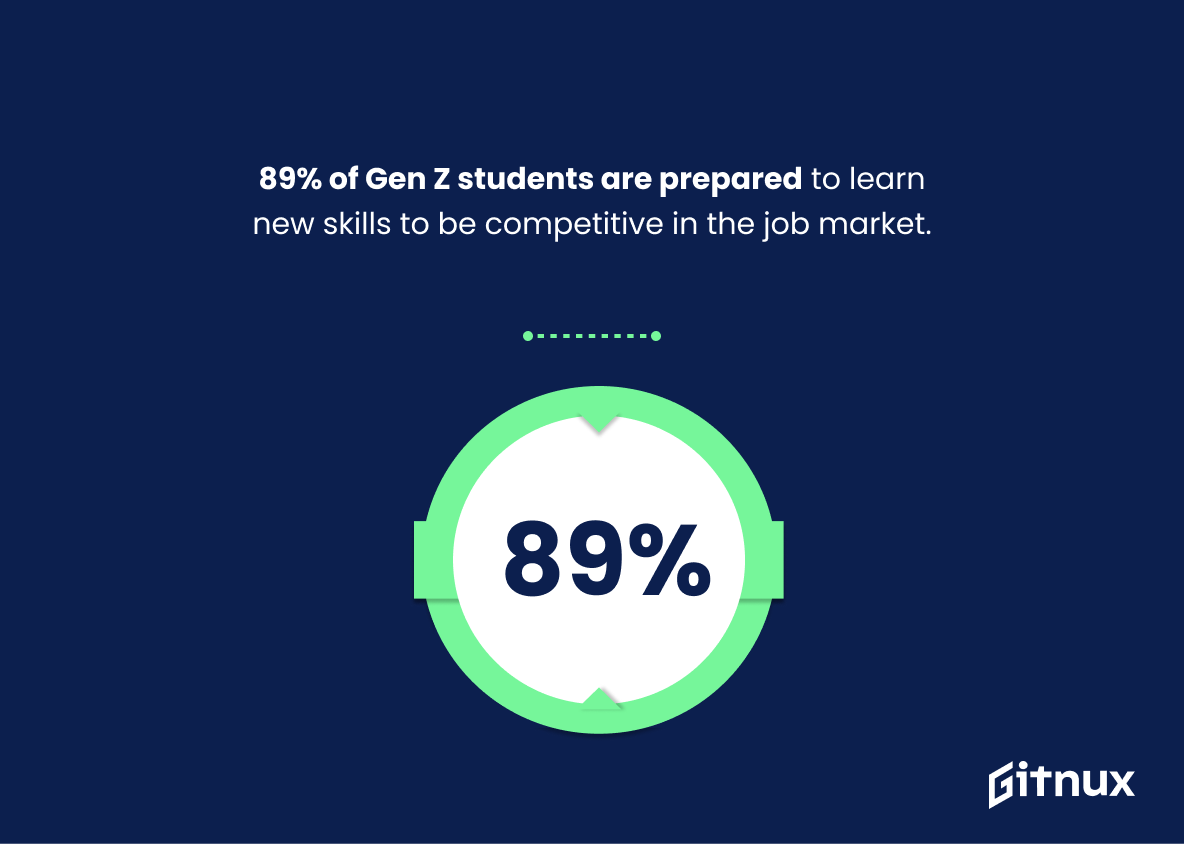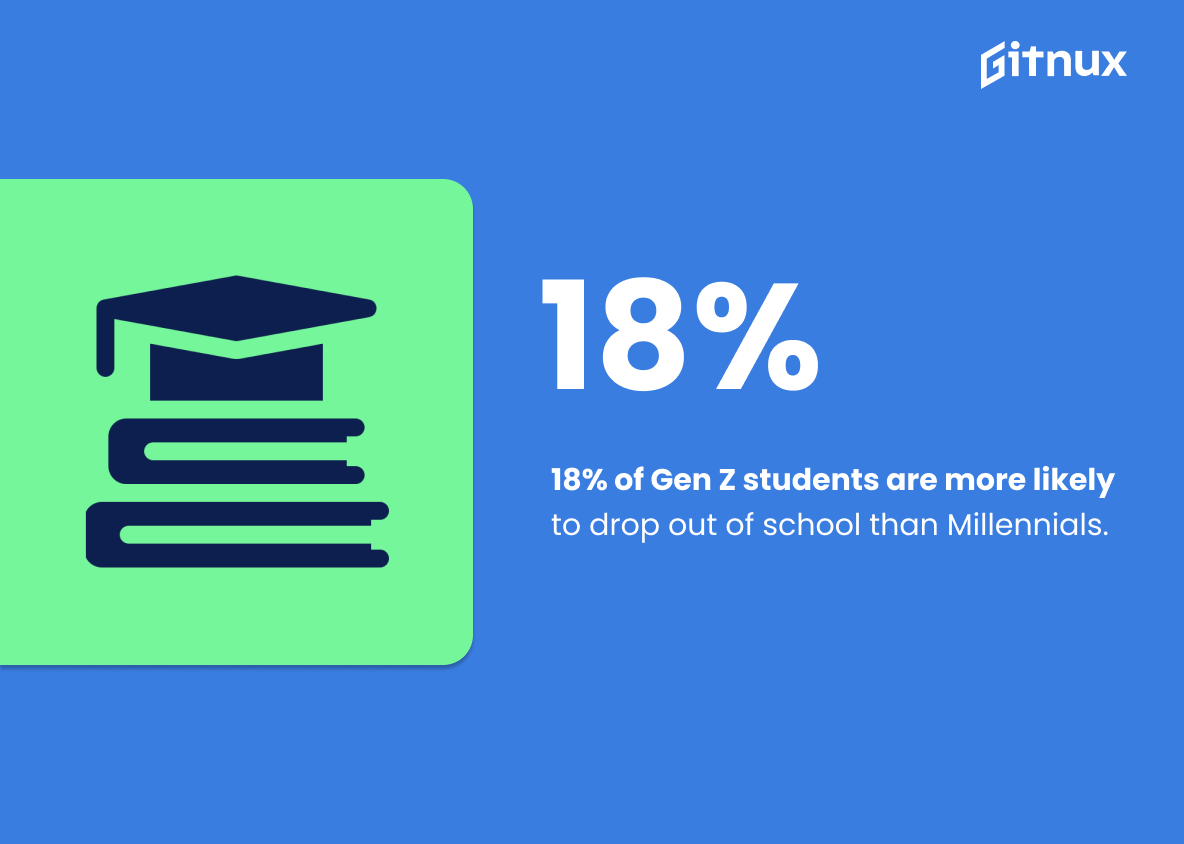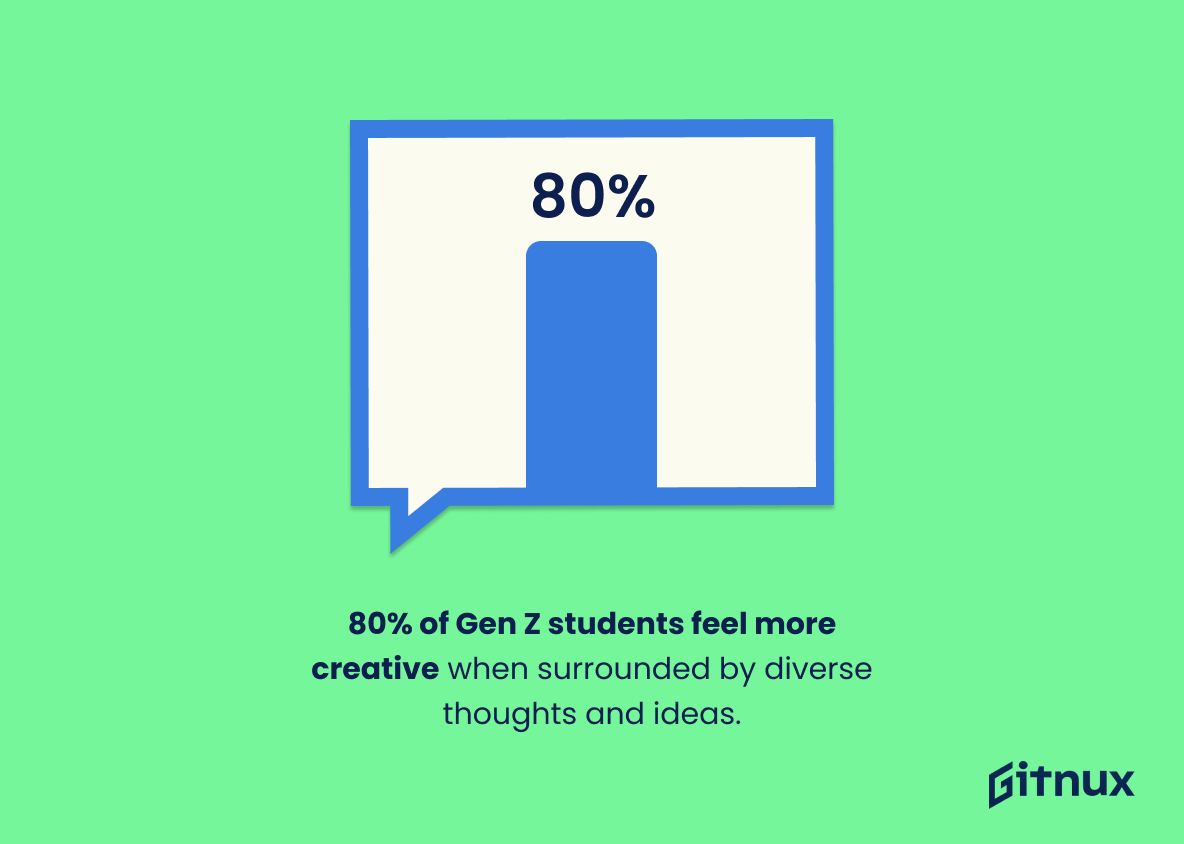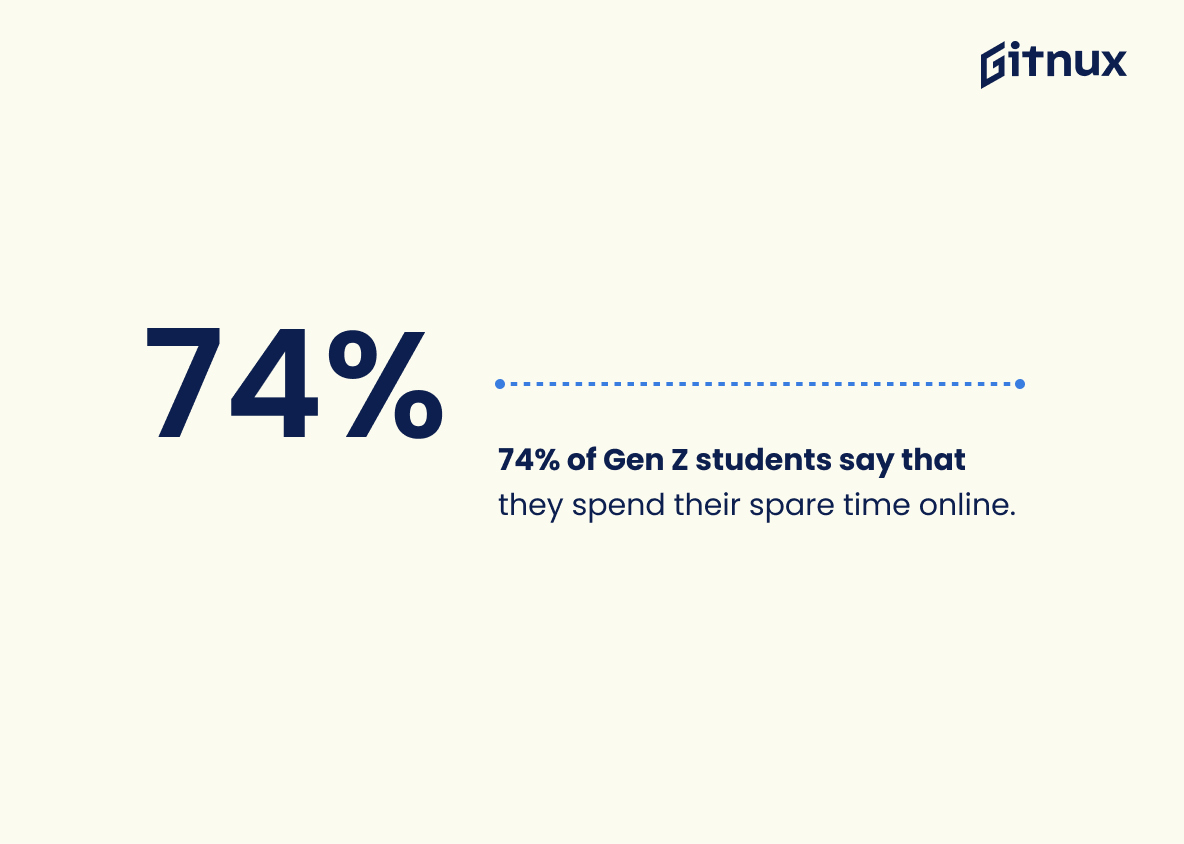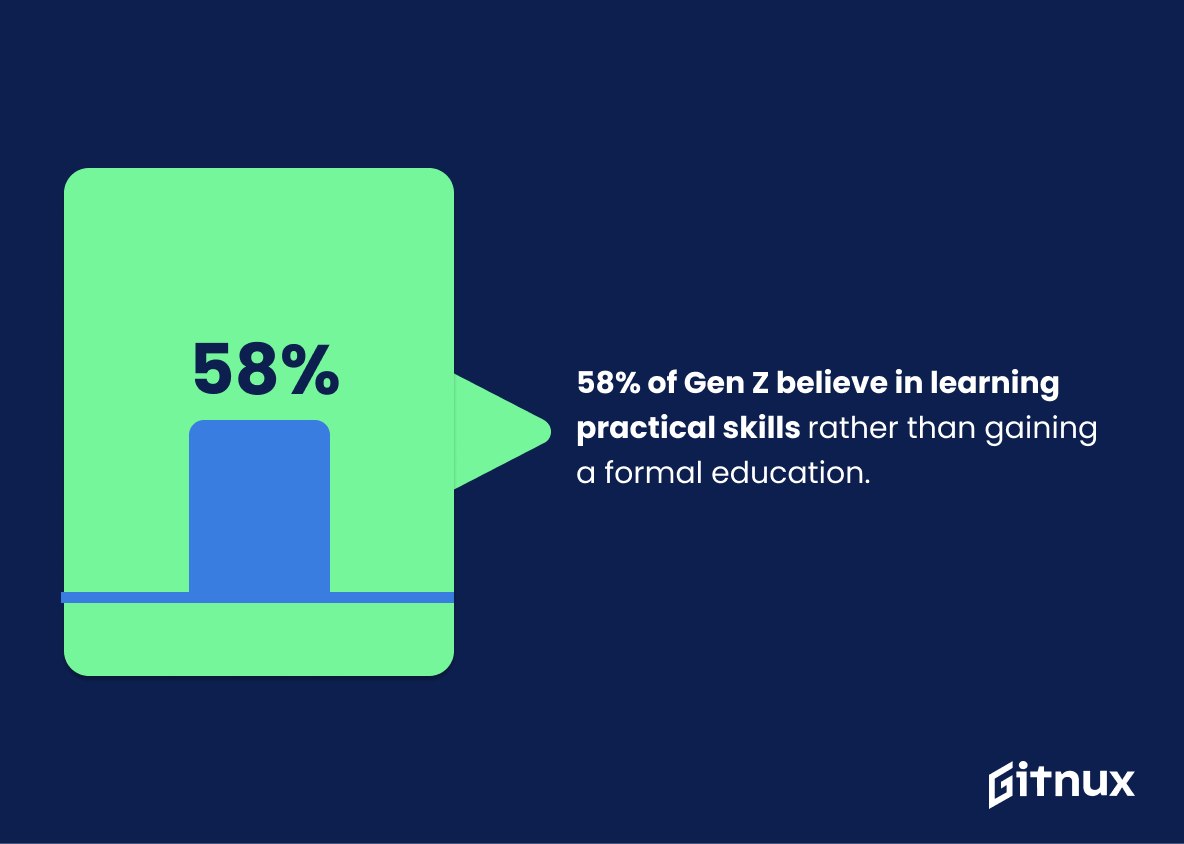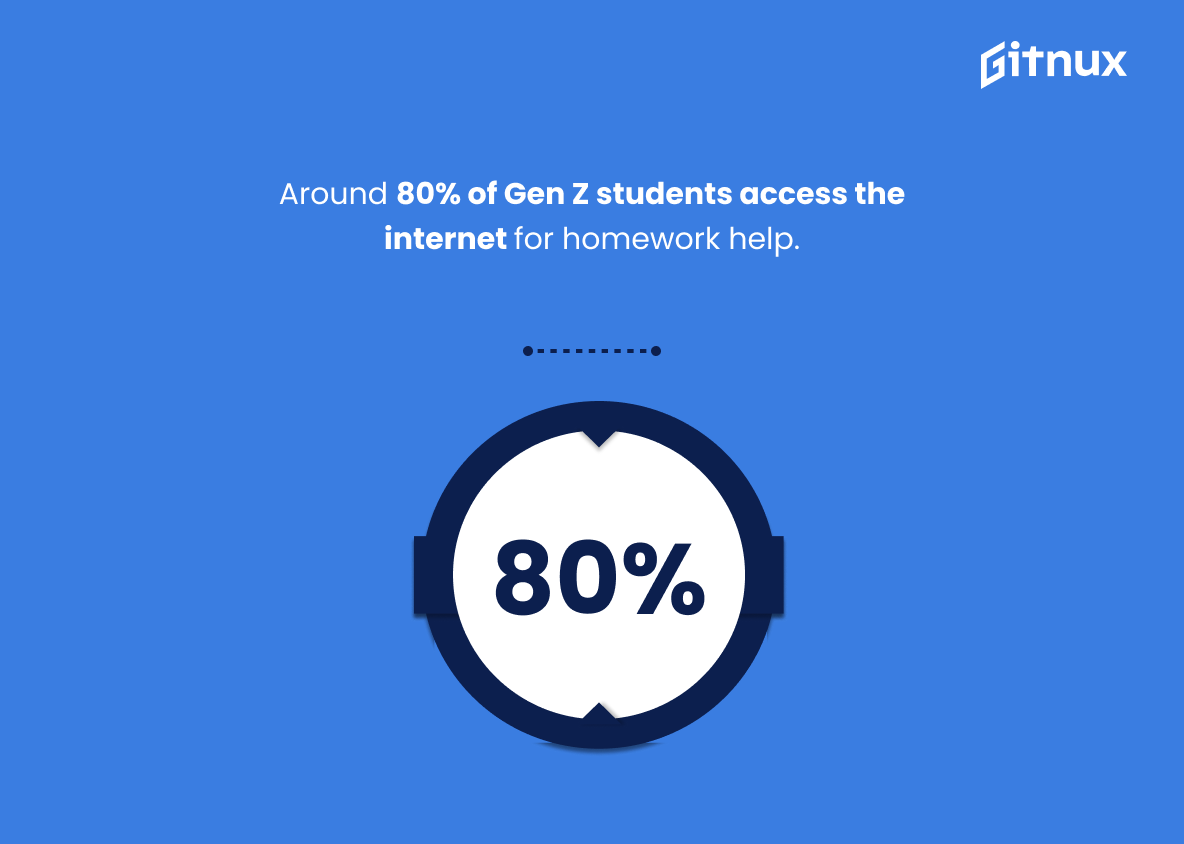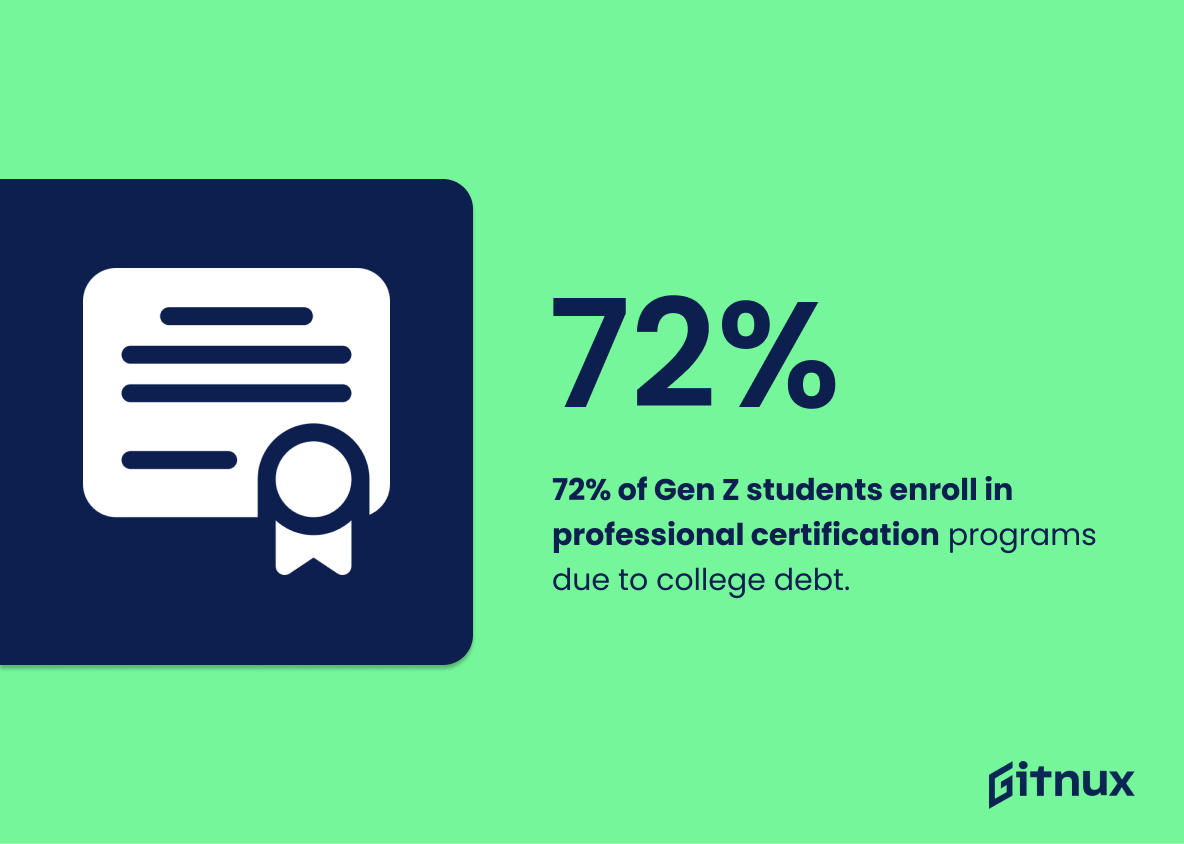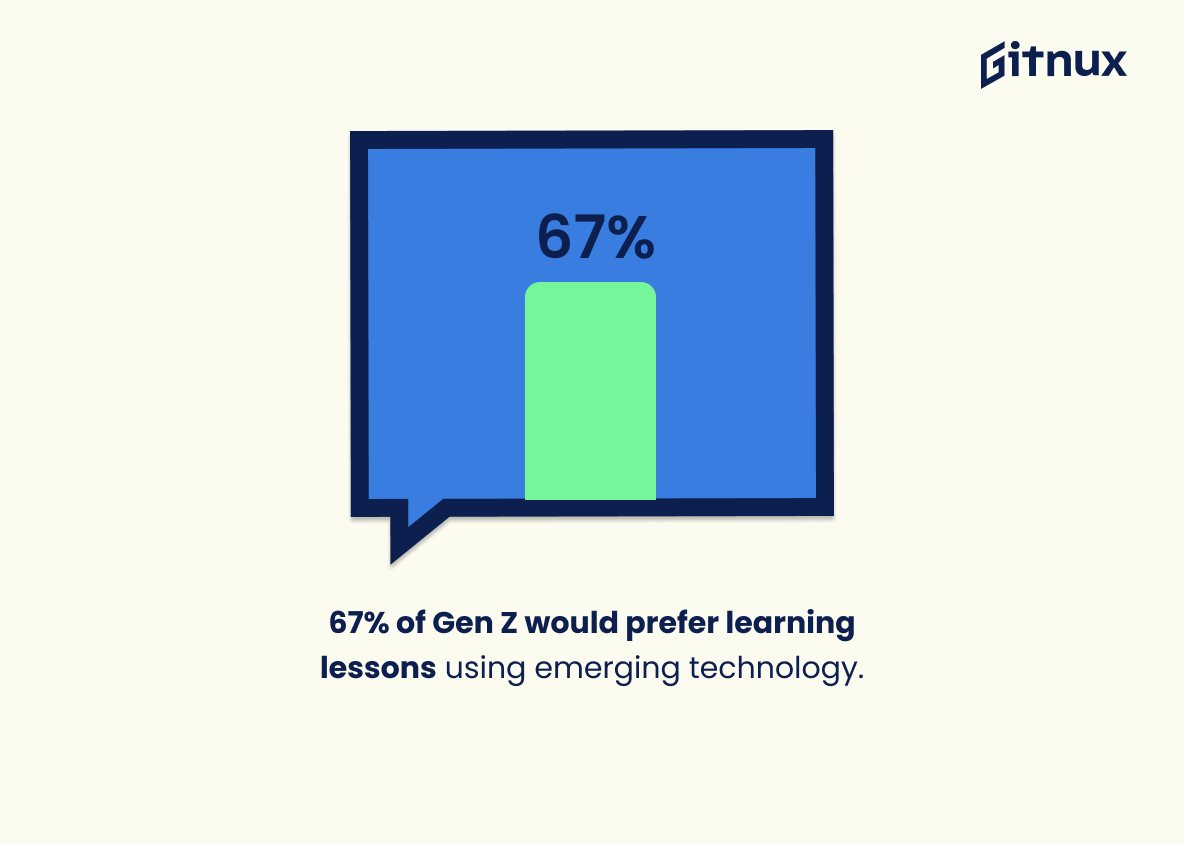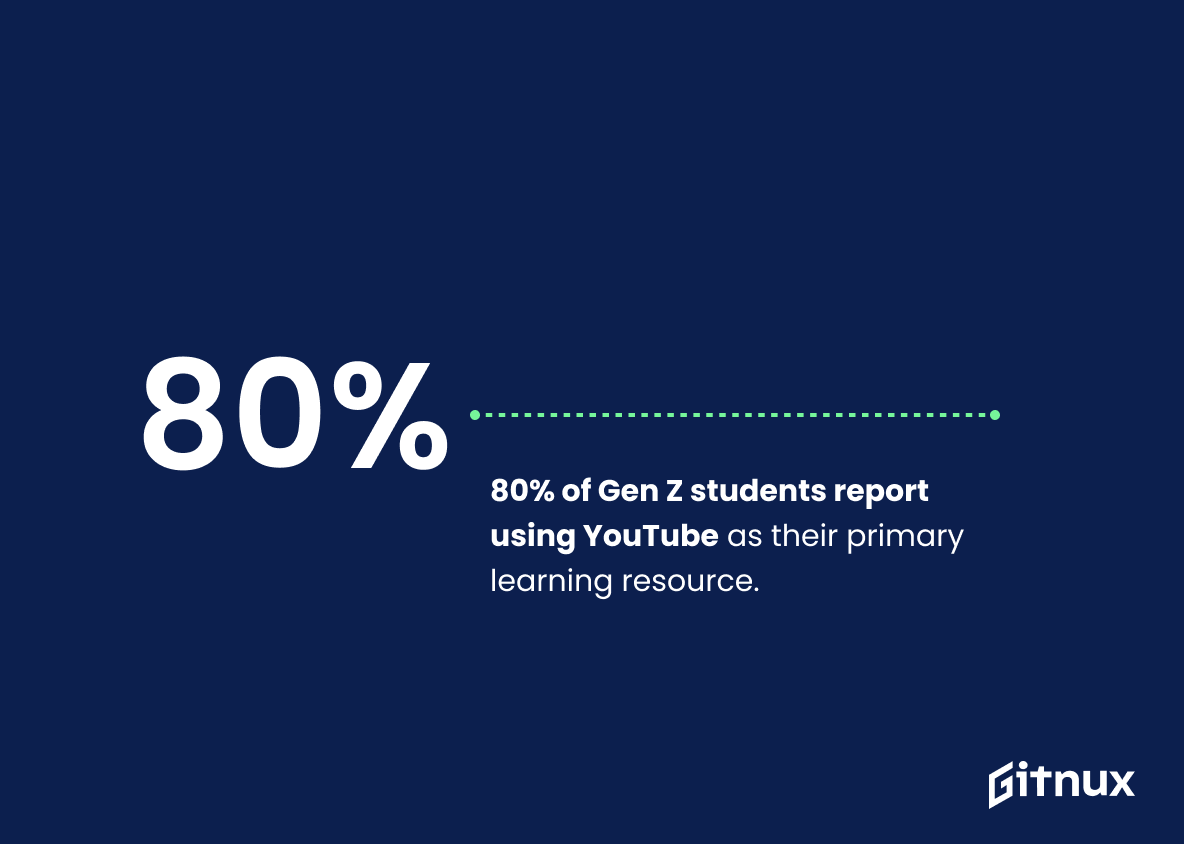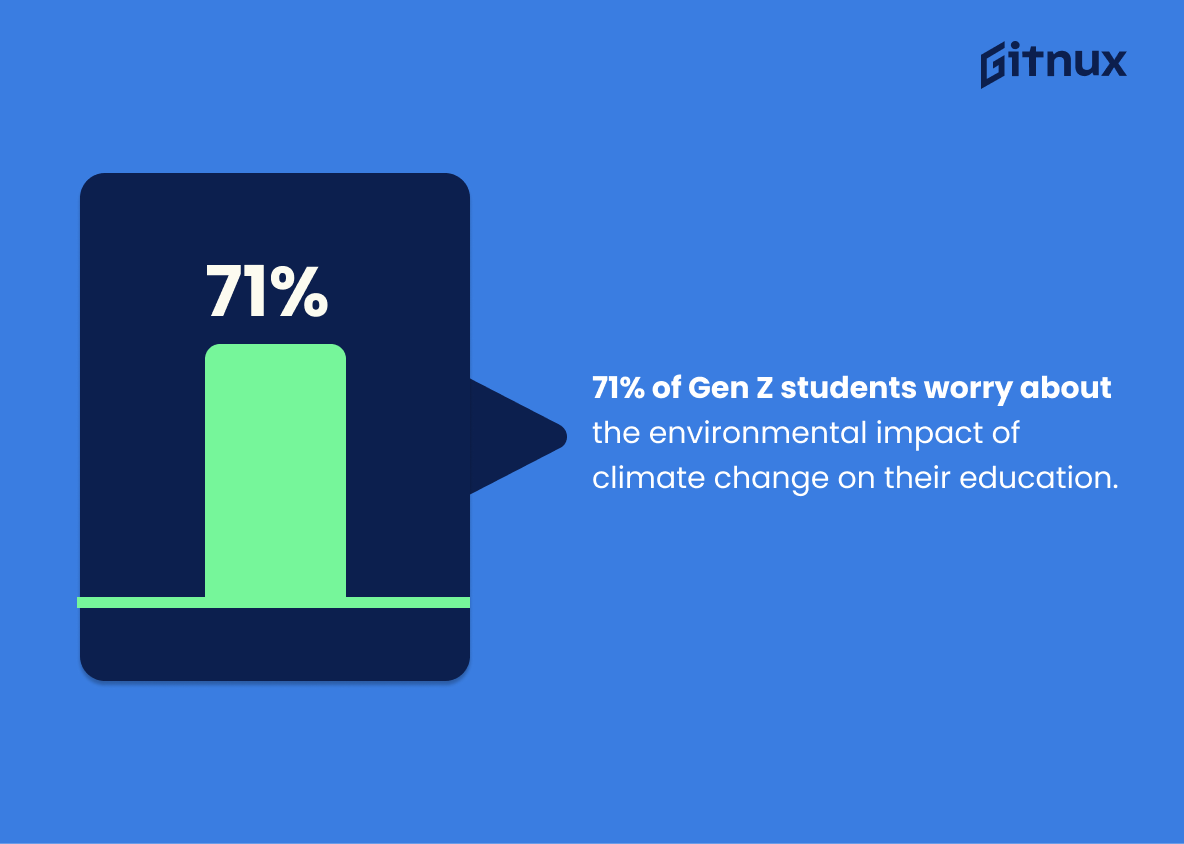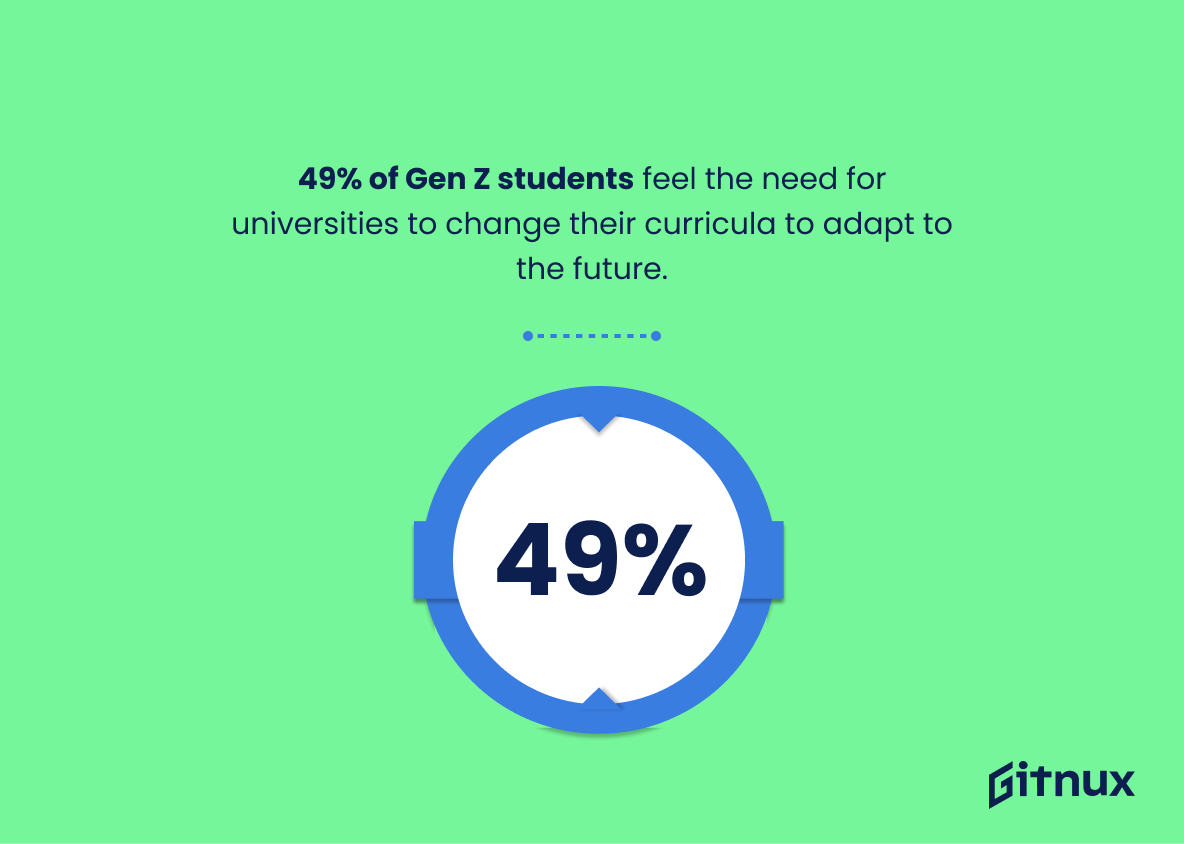As the world’s population continues to grow, so does the number of generations. Gen Z is one such generation that has been gaining attention recently due to their unique perspectives on education and learning.
This blog post will explore some interesting statistics about Gen Z students’ views on higher education, technology use in classrooms, media consumption habits, work styles preferences and more.
We’ll also look at how these trends are impacting universities around the globe as they strive to meet this new generation’s needs for a modernized educational experience. So let’s dive into what we know about Generation Z when it comes to their attitudes towards education.
Gen Z Education Statistics Overview
29% of Gen Z think robots will help them learn more efficiently.
This statistic is indicative of the fact that Gen Z is open to the idea of using robots to help them learn more efficiently. It shows that they are willing to embrace technology and use it to their advantage to gain knowledge. This is an important insight into the mindset of Gen Z, and it can be used to inform educational strategies that are tailored to their needs.
69% of Gen Z students believe the college admission process has become too competitive.
This statistic is a telling indication of the current state of college admissions. It reveals that the majority of Gen Z students feel that the college admission process has become too competitive, which can be a source of stress and anxiety for many. This statistic is important to consider when discussing Gen Z education statistics, as it provides insight into the current college admissions landscape and the challenges that Gen Z students face.
88% of Gen Z prefers a collaborative work style to an isolated one.
This statistic is significant in the context of Gen Z Education Statistics because it speaks to the importance of creating an environment that encourages collaboration and teamwork. It highlights the need for educational institutions to provide students with the opportunity to work together and learn from each other, rather than relying solely on individual study. By fostering a collaborative work style, educational institutions can ensure that Gen Z students are able to develop the skills necessary to succeed in the modern workplace.
67% of Gen Z students expect personalized learning experiences.
This statistic is indicative of the fact that Gen Z students are looking for more than just a traditional education. They are seeking out learning experiences that are tailored to their individual needs and interests. This speaks to the importance of providing personalized learning experiences for Gen Z students to meet their educational needs and keep them engaged.
89% of Gen Z students are prepared to learn new skills to be competitive in the job market.
This statistic is a testament to the ambition and drive of Gen Z students. It strongly suggests that they are willing to go the extra mile to ensure they are competitive in the job market, demonstrating their commitment to their future success. This statistic is an important reminder of the importance of providing Gen Z students with the resources and support they need to develop the skills they need to succeed.
18% of Gen Z students are more likely to drop out of school than Millennials.
This statistic is a stark reminder of the importance of understanding the educational needs of Gen Z students. It highlights the need for educators to be aware of the unique challenges that this generation faces and to develop strategies to ensure that they are supported in their educational pursuits. By understanding the factors that contribute to Gen Z students dropping out of school, educators can create an environment that is conducive to their success.
80% of Gen Z students feel more creative when surrounded by diverse thoughts and ideas.
This statistic is indicative of the importance of diversity in the education of Gen Z students. It suggests that when students are exposed to a variety of perspectives, they are more likely to be creative and innovative in their thinking. This is an important insight for educators, as it highlights the need to create an environment that encourages students to explore different ideas and perspectives. By doing so, educators can help foster a more creative and innovative learning environment for Gen Z students.
74% of Gen Z students say that they spend their spare time online.
This statistic is indicative of the fact that Gen Z students are increasingly turning to the internet for entertainment and leisure activities. It is important to consider this statistic when discussing Gen Z education statistics, as it can provide insight into how students are spending their time outside the classroom. This could have implications for how educators can best engage with Gen Z students and how they can use technology to enhance their learning experience.
58% of Gen Z believe in learning practical skills rather than gaining a formal education.
This statistic is indicative of the fact that Gen Z is increasingly prioritizing practical skills over formal education. This shift in focus has implications for the way in which Gen Z approach their education, and how educators and employers must adapt to meet their needs. As such, this statistic is an important piece of information to consider when discussing Gen Z education statistics.
Around 80% of Gen Z students access the internet for homework help.
This statistic is a telling indication of the importance of the internet in the lives of Gen Z students. It highlights the fact that the internet is a major source of information and assistance for students in their academic pursuits. This statistic is especially relevant in a blog post about Gen Z Education Statistics, as it provides insight into the learning habits of this generation and the resources they rely on to succeed.
72% of Gen Z students consider college debt as the main reason for enrolling in professional certification programs.
This statistic is a telling indication of the financial burden that Gen Z students face when considering college. It highlights the need for more affordable education options and the importance of professional certification programs as a viable alternative. It also speaks to the resourcefulness of Gen Z students in finding ways to further their education without taking on a large amount of debt. This statistic is an important reminder of the financial realities that Gen Z students face and the need for more accessible education options.
67% of Gen Z would prefer learning lessons using emerging technology.
This statistic is indicative of the fact that Gen Z is eager to embrace emerging technology in their learning. It speaks to the fact that this generation is open to new and innovative ways of learning, which could be beneficial for educators looking to engage their students. Furthermore, it could be an indication that Gen Z is more tech-savvy than previous generations, which could be a asset in the classroom.
80% of Gen Z students report using YouTube as their primary learning resource.
This statistic is significant in the context of Gen Z Education Statistics because it highlights the importance of YouTube as a learning resource for this generation. It demonstrates that Gen Z students are increasingly turning to digital platforms for educational purposes, and that YouTube is a key platform for them to access educational content. This statistic is indicative of the changing landscape of education, and the need for educators to be aware of the digital tools that Gen Z students are using to learn.
71% of Gen Z students worry about the environmental impact of climate change on their education.
This statistic is a powerful indicator of the impact climate change has on Gen Z students’ education. It speaks to the growing concern among this generation that their education is being threatened by environmental issues. This statistic is a reminder that Gen Z students are aware of the consequences of climate change and are actively seeking solutions to protect their education.
49% of Gen Z students feel the need for universities to change their curricula to adapt to the future.
This statistic is a powerful indicator of the changing needs of Gen Z students. It speaks to the fact that the current university curricula may not be adequately preparing students for the future, and that universities need to take steps to ensure that their students are equipped with the skills and knowledge necessary to succeed in the modern world. This statistic is a call to action for universities to take a proactive approach to adapting their curricula to the changing needs of their students.
Conclusion
From the statistics presented, it is clear that Gen Z students are a unique generation with distinct needs and preferences when it comes to education. They prioritize affordability, collaboration, personalized learning experiences, practical skills development and emerging technology in their educational pursuits.
Furthermore, they have an awareness of environmental issues as well as the need for universities to adapt curricula to meet future demands. As this generation continues to grow over the coming years – estimated at 25% of world’s population by 2025 – understanding these trends will be essential for educators looking ahead towards meeting Gen Z’s educational needs.
References
0. – https://www.elearningindustry.com
1. – https://www.businesswire.com
2. – https://www.rasmussen.edu
3. – https://www.apa.org
4. – https://www.isteconference.org
5. – https://www.medium.com
6. – https://www.rand.org
7. – https://www.goandgrowonline.com
8. – https://www.edsurge.com
9. – https://www.edweek.org
10. – https://www.learningsolutionsmag.com
11. – https://www.scholarships.com
12. – https://www.knilt.arcc.albany.edu
13. – https://www.pearsoned.com
14. – https://www.echo.co
